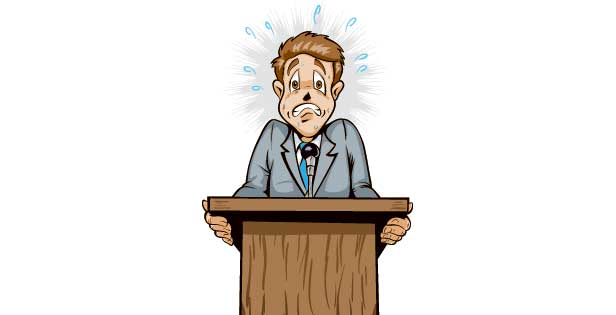Stage fright—it’s the heart-pounding, sweat-inducing terror that strikes when you have to face an audience. But guess what? Stand-up comedy might just be the most unlikely, yet effective, solution to kick stage fright to the curb. Comedians have mastered the art of turning fear into laughs, and here’s how you can do the same. Let’s break it down, with a little help from some of the funniest minds out there.
1. Exposure Therapy: Face the Fear to Beat the Fear
The best way to overcome fear is to tackle it head-on, and stand-up comedy forces you to do just that. It’s like throwing yourself into the deep end of the pool, but instead of water, it’s a sea of potential awkward silences. Yet, with each performance, the fear shrinks a little more.
Tiffany Haddish, who got her start on some pretty rough stages, knows this all too well. She said, “Bombing is a part of comedy. I bombed so many times that eventually I was like, ‘Whatever happens, happens.’” The more you put yourself on stage, the less terrifying it becomes, and the more you can start having fun with it. Haddish proves that facing failure (again and again) is how you gain stage confidence.
2. Real-Time Feedback: Learn to Adapt Quickly
Stand-up is all about instant feedback. If your joke doesn’t land, you’ll know. Right away. There’s no sugar-coating it. But this real-time interaction with the audience teaches you how to think on your feet and handle different reactions with grace (or at least a well-timed comeback).
Eddie Izzard, the king of surreal improvisation, puts it perfectly: “You’ve got to be able to listen to the audience and react to them in the moment.” Whether it’s rolling with laughter or dead silence, you learn to adjust quickly, making you more adaptable—not just on stage but in life. If you can handle a quiet room of strangers, you can handle anything.
3. Stand-Up as Social Connection: The Power of Laughter
Comedy is more than just jokes—it’s about connecting with people. And when you get that connection, the audience isn’t so scary anymore. They’re right there with you, laughing and engaging. Once you realize that, it’s like the magic trick behind the fear disappears.
Trevor Noah captures this idea beautifully: “Comedy is about empathy. Once you can make people laugh, you’ve made a connection.” It’s not about having the audience judge you, but about creating a shared moment. When the room fills with laughter, you understand that people aren’t here to critique you; they’re here to enjoy the ride with you.
4. Turning Fear into Fun: The Therapeutic Side of Comedy
Some comedians make entire careers out of using their anxieties and personal fears as material. They take the very things that scare them and turn them into punchlines. Stand-up allows you to reframe your fears, not as something to hide from but as material to laugh at.
Maria Bamford, who has been open about her struggles with mental health, uses comedy to turn her darkest fears into laughs. “Comedy is like therapy,” she said, “except with comedy, you actually get paid.” By using humor to process her anxieties, Bamford demonstrates how confronting fear through jokes can be incredibly empowering. When you turn your fears into something funny, you’re no longer at their mercy.
5. Building Resilience: Embrace the Bombs
Here’s the truth: Every comedian bombs. Even the best of the best. But the key isn’t to avoid failure; it’s to learn from it and keep going. Stand-up comedy teaches you resilience because every performance, even the bad ones, is part of your growth.
Kevin Hart, who didn’t have the smoothest start in comedy, knows all about bombing. “I bombed every night for two years straight,” he recalls. “But every time I bombed, I learned something new.” In comedy, failure is just part of the process, and once you realize that, stage fright loses its power. It’s not about avoiding mistakes—it’s about laughing through them and coming back stronger.
Conclusion: Why Stand-Up Comedy Works
Stand-up comedy may seem like an odd solution for overcoming stage fright, but it works. Regularly getting on stage, handling real-time feedback, and learning to adapt quickly builds the confidence that helps you manage fear, whether you’re telling jokes or giving a speech.
If stand-up comedy can teach you one thing, it’s that failing is part of the journey—and that journey can be pretty fun. As Chris Rock famously said, “You only become funny when you stop caring if people think you’re funny.” So, go ahead, grab the mic, and embrace the awkwardness. The stage is yours.
Follow me on IG@AliMehediOfficial
